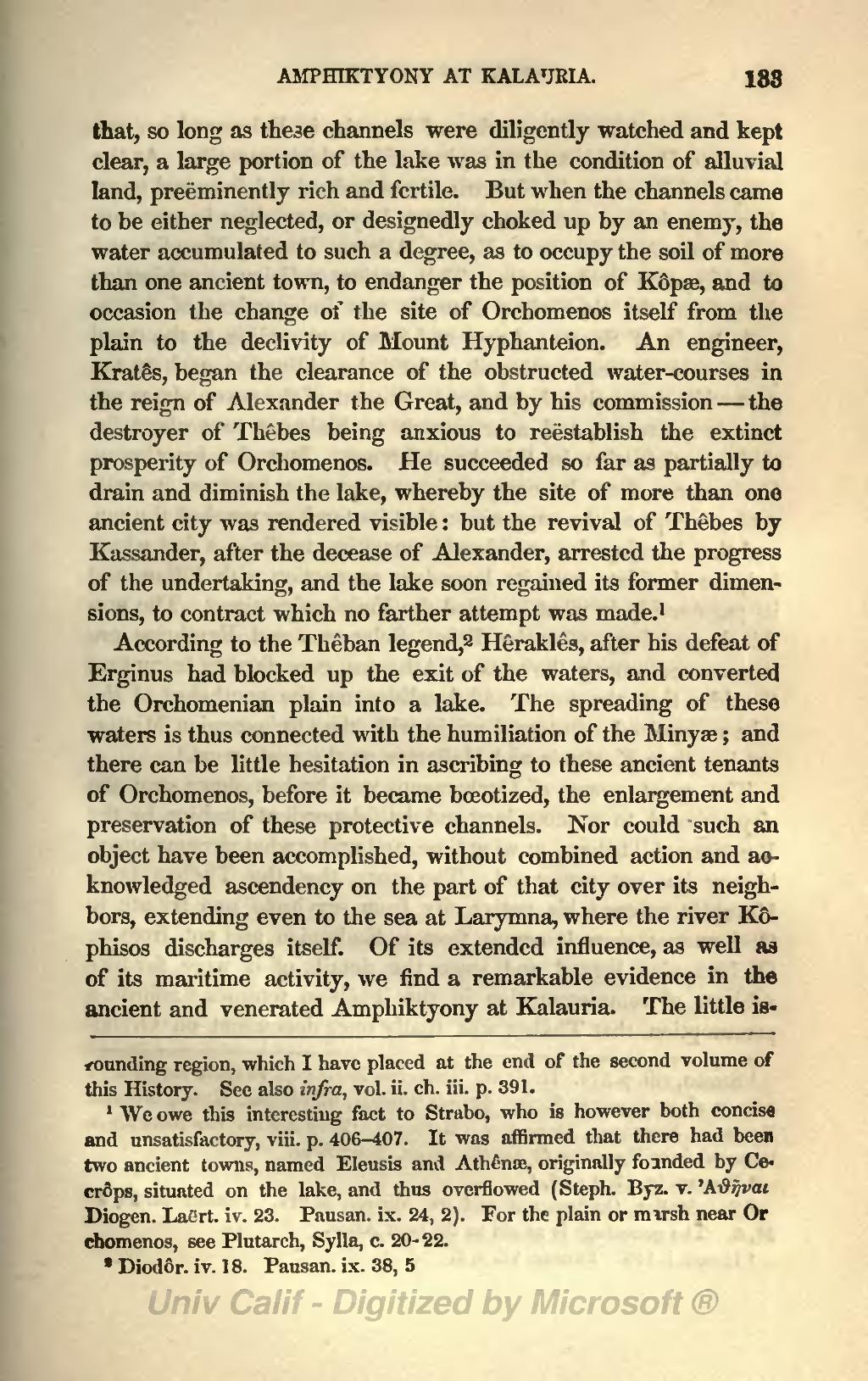AMPHIKTYONY AT KALAUEIA. 183 that, so long as these channels were diligently watched and kept clear, a large portion of the lake was in the condition of alluvial land, preeminently rich and fertile. But when the channels came to be either neglected, or designedly choked up by an enemy, the water accumulated to such a degree, as to occupy the soil of more than one ancient town, to endanger the position of Kopas, and to occasion the change of the site of Orchomenos itself from the plain to the declivity of Mount Hyphanteion. An engineer, Krates, began the clearance of the obstructed water-courses in the reign of Alexander the Great, and by his commission the destroyer of Thebes being anxious to reestablish the extinct prosperity of Orchomenos. He succeeded so far as partially to drain and diminish the lake, whereby the site of more than one ancient city was rendered visible : but the revival of Thebes by Kassander, after the decease of Alexander, arrested the progress of the undertaking, and the lake soon regained its former dimen- sions, to contract which no farther attempt was made. 1 According to the Theban legend, 2 Herakles, after his defeat of Erginus had blocked up the exit of the waters, and converted the Orchomenian plain into a lake. The spreading of these waters is thus connected with the humiliation of the Minyae ; and there can be little hesitation in ascribing to these ancient tenants of Orchomenos, before it became boeotized, the enlargement and preservation of these protective channels. Nor could such an object have been accomplished, without combined action and ac- knowledged ascendency on the part of that city over its neigh- bors, extending even to the sea at Larymna, where the river K6- phisos discharges itself. Of its extended influence, as well aa of its maritime activity, we find a remarkable evidence in the ancient and venerated Amphiktyony at Kalauria. The little is- founding region, which I have placed at the end of the second volume of this History. See also infra, vol. ii. ch. iii. p. 391. 1 We owe this interesting fact to Strabo, who is however both concise and unsatisfactoiy, viii. p. 406-407. It was affirmed that there had been two ancient towns, named Eleusis and Athense, originally founded by Ce crops, situated on the lake, and thus overflowed (Steph. Byz. v. 'Atf^vat Diogen. Laurt. iv. 23. Pausan. ix. 24, 2). For the plain or nursh near Or chomenos, see Plutarch, Sylla, c. 20-22.
- Diodor. iv. 1 8. Pausan. ix. 38, 5
